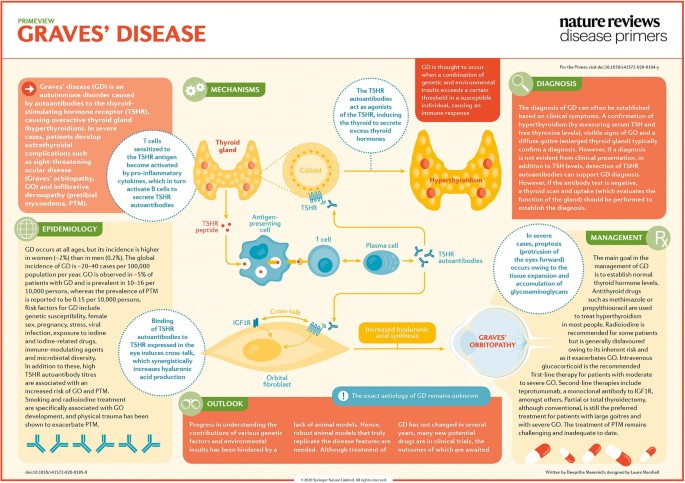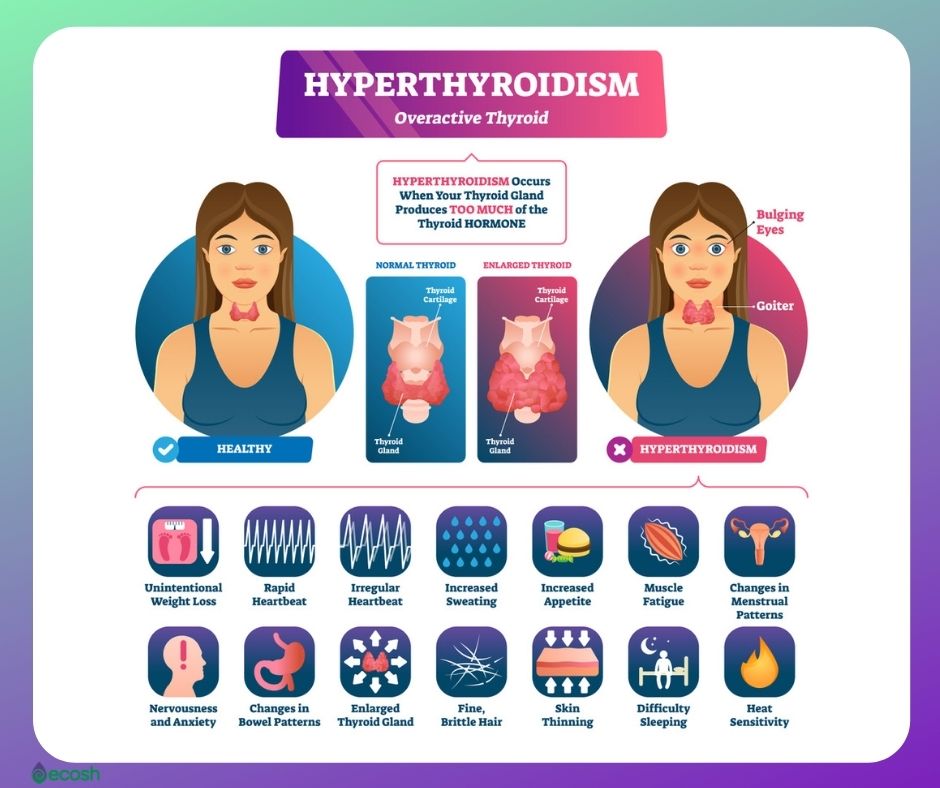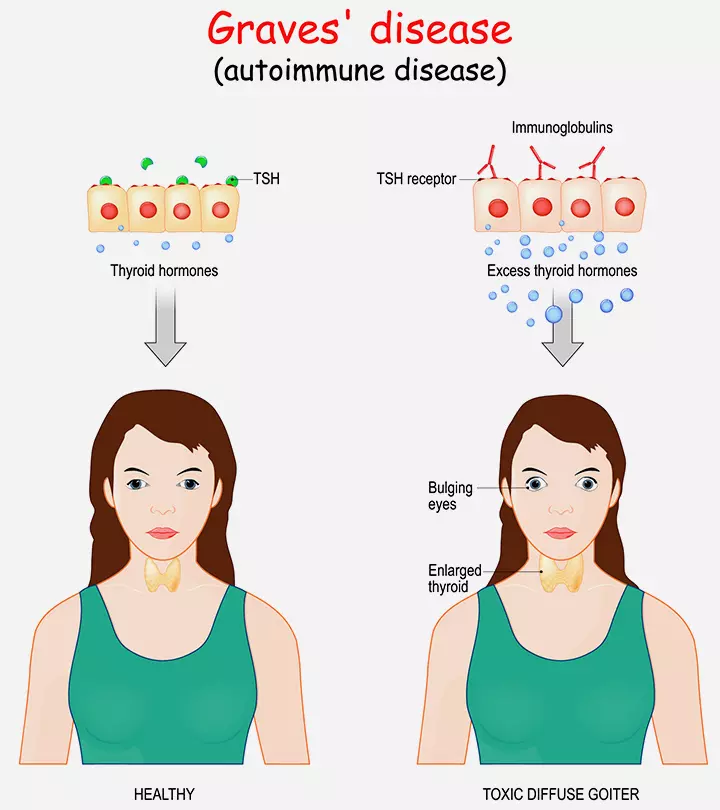Discover how to effectively manage Graves Disease symptoms and improve your quality of life with these simple and practical tips.
Table of Contents
Introduction to Graves’ Disease
Graves’ disease is an autoimmune disorder that affects the thyroid, an important gland in your body responsible for regulating your metabolism. When someone has Graves’ disease, their immune system mistakenly attacks the thyroid, causing it to produce too many hormones. This leads to a variety of symptoms that can impact your overall health.
Thyroid health is crucial because the thyroid gland controls how your body uses energy, grows, and functions. Think of it as a traffic light that helps regulate the speed of your body’s processes. When the thyroid is not working correctly due to Graves’ disease, it can affect everything from your weight to your mood.
Understanding Graves’ disease is essential to managing its symptoms effectively. By learning more about how it affects your thyroid health, you can work with your healthcare team to find the best treatment plan for you.
Understanding Your Thyroid
Let’s talk about your thyroid and how important it is for your body. The thyroid is a little butterfly-shaped gland in your neck that helps control how your body uses energy. It acts like the boss of your body’s metabolism, making sure everything runs smoothly.
The Role of the Thyroid Gland
Your thyroid gland produces hormones that regulate your growth, development, and energy levels. These hormones tell your body how fast to work and how to use the food you eat for energy. Think of it as a master controller that keeps everything in balance.
What Can Go Wrong
Sometimes, things can go haywire with your thyroid. It might produce too many hormones (hyperthyroidism) or too few (hypothyroidism), causing problems like weight changes, mood swings, or fatigue. When your thyroid isn’t working right, it can throw off how your body functions.
Knowing how the thyroid works and what can happen if it’s not working correctly is essential to understanding how Graves’ disease, an autoimmune disorder, affects your thyroid health.
Autoimmune System Explained
Imagine your body as a kingdom that needs protection from invaders. Your immune system is like a powerful superhero army whose job is to defend the kingdom from any harmful enemies like germs or bacteria. It fights off these intruders to keep you healthy and safe.

Image courtesy of www.nature.com via Google Images
When Our Body Makes a Mistake
Sometimes, even superheroes can get confused and make mistakes. In the case of an autoimmune disorder, the immune system mistakenly sees some of the body’s cells as enemies and starts attacking them. This can cause problems like Graves’ disease, where the immune system attacks the thyroid gland, affecting how it works.
Spotting Graves’ Disease
When it comes to identifying Graves’ disease, it’s essential to pay attention to certain signs that could indicate a problem with your thyroid health. From changes in weight and mood to specific eye symptoms, here’s how you can spot the presence of Graves’ disease.
Common Symptoms in Kids
As an 11-year-old, you might notice some symptoms that feel unusual to you. These could include sudden weight loss even though you haven’t been trying to lose weight, feeling more tired than usual, or experiencing mood swings. Sometimes, you might find that your heart is beating faster than normal, or that you’re feeling warmer than everyone else in the room.
What About Your Eyes?
One of the hallmark signs of Graves’ disease is changes in your eyes. This could mean that your eyes bulge out slightly, or that they feel dry, irritated, or red. You might also have double vision or find it hard to move your eyes in certain directions. Remember, if you notice any of these changes, it’s essential to speak to a parent or guardian and seek medical advice.
Visiting the Doctor
When you have Graves’ disease, visiting the doctor is an important step in managing your health. The doctor might start by asking you questions about how you’ve been feeling. They may also perform some tests to check your thyroid gland and see how it’s working. These tests can help the doctor understand what’s going on in your body and how to best help you feel better.

Image courtesy of ecosh.com via Google Images
Understand Specialist Care
Sometimes, a doctor who specializes in endocrinology, called an endocrinologist, might be needed to help with Graves’ disease. Endocrinologists know a lot about glands like the thyroid and how they work. They can give you even more specialized care to help you manage your symptoms and feel your best. Don’t worry, though – they’re there to help and make sure you’re as healthy as possible.
Treating Graves’ Disease
When it comes to managing Graves’ disease, there are various treatment options that doctors can explore to help alleviate symptoms and improve thyroid health. Here are some common approaches that can make a difference:
Medicine Helpers
Doctors may prescribe medications to help regulate the overactive thyroid in Graves’ disease. These medications work by controlling the production of hormones in the thyroid gland, helping to bring hormone levels back to normal. It’s important to take these medications as prescribed by your doctor and attend regular check-ups to monitor your progress.
Keeping Symptoms in Check
Aside from medication, there are lifestyle changes that can also aid in managing Graves’ disease symptoms. Simple adjustments like getting enough rest, eating a healthy diet, and reducing stress can help minimize the impact of the condition on your daily life. Regular exercise and staying active can also contribute to a sense of well-being and help support overall health.
| Symptom | Management |
|---|---|
| Weight loss | Consult a dietitian for a balanced diet plan. Monitor weight regularly. Consider weight gain supplements if needed. |
| Irregular heartbeat | Consult a cardiologist for medication or treatment options. Avoid caffeine and alcohol. |
| Protruding eyes (exophthalmos) | Consult an ophthalmologist for medical or surgical treatments. Use lubricating eye drops to prevent dryness. |
| Tremors | Discuss with a neurologist for medication options. Practice stress-reducing techniques. |
| Fatigue | Ensure proper rest and sleep. Consider energy-boosting supplements or medications. |
| Muscle weakness | Consult a physiotherapist for strengthening exercises. Monitor for signs of muscle deterioration. |
Eating Well for Your Thyroid
One essential way to take care of your thyroid is by eating the right kind of foods. Your thyroid gland needs certain nutrients to work well, and the food you eat can play a big role in keeping it healthy.
Image courtesy of manualofmedicine.com via Google Images
Thyroid-Friendly Snacks
When you’re feeling hungry between meals, reach for snacks that can be good for your thyroid. Nuts like almonds and Brazil nuts are rich in selenium, a mineral that helps your thyroid function properly. You can also enjoy a slice of avocado toast, which provides healthy fats that support overall thyroid health.
Foods to Be Buddy With
Certain foods can be great friends to your thyroid and immune system. Try to add more leafy greens like spinach and kale to your meals, as they are packed with vitamins and minerals that are beneficial for your thyroid. Seafood like salmon and tuna are also excellent choices because they contain omega-3 fatty acids that can reduce inflammation in your body and support thyroid health.
Daily Life with Graves’ Disease
Having Graves’ disease doesn’t mean you can’t have fun and enjoy activities. It’s essential to find a balance between playtime and rest. Make sure to listen to your body and take breaks when you need them. You can still engage in your favorite hobbies, sports, and games, but remember to pace yourself to conserve energy.
Talking to Friends
Explaining Graves’ disease to your friends may seem challenging, but it doesn’t have to be. You can start by telling them that it’s a condition that affects your thyroid, which is a gland in your body. Let them know that you might feel tired or have other symptoms sometimes, but that you’re still the same awesome friend they know. Encourage them to ask questions so they can better understand and support you.
Getting Support
In dealing with Graves’ disease, it can sometimes feel overwhelming, but you are never alone. Seeking support from others can make a big difference in how you manage the symptoms and cope with the challenges it brings.

Image courtesy of www.momjunction.com via Google Images
Finding People Who Understand
One of the most comforting things you can do is connect with others who are going through similar experiences. Support groups for Graves’ disease can provide a safe space to share your feelings, ask questions, and learn from others who can truly understand what you’re going through.
Working Together with Family
Your family is there to support you every step of the way. Sharing your feelings, concerns, and triumphs with your family can help them understand how to best support you in managing Graves’ disease. Whether it’s keeping track of medications, accompanying you to doctor’s appointments, or just lending a listening ear, having your family by your side can make a big difference.
Summary
In this blog post, we have covered important information about managing Graves’ disease symptoms. Graves’ disease is an autoimmune disorder that affects the thyroid, an important gland in the body. We discussed how the immune system works and what happens when it mistakenly attacks the body’s own cells, leading to conditions like Graves’ disease.
We also highlighted common symptoms of Graves’ disease, including changes in weight, mood, and eye symptoms that can be noticeable. It’s important to understand these signs and visit a doctor, especially a specialist in endocrinology, for proper diagnosis and treatment.
When it comes to treating Graves’ disease, doctors may prescribe medications to regulate thyroid function and help manage symptoms. Making lifestyle changes, such as eating thyroid-friendly foods and striking a balance between activities and rest, can also aid in managing the condition.
Lastly, we discussed the importance of getting support from family, friends, and support groups. It’s crucial to reach out to others who understand your experience and work together for effective management of the disease.
Frequently Asked Questions (FAQs)
Can kids get Graves’ disease?
Yes, kids can get Graves’ disease too. While it is more common in adults, children can also be affected by this condition. If you notice any symptoms like changes in weight, mood, or eye problems, it’s essential to talk to a doctor.
Will Graves’ disease go away on its own?
Graves’ disease doesn’t typically go away on its own. It usually requires treatment from doctors to manage symptoms and improve thyroid health. With the right care and support, children with Graves’ disease can lead normal and healthy lives.
Can I still play sports and do fun activities?
Absolutely! While managing Graves’ disease, it’s essential to listen to your body. Staying active and playing sports can be good for both your physical and mental health. Just make sure to communicate with your doctor about your activities and any limits you should keep in mind.





